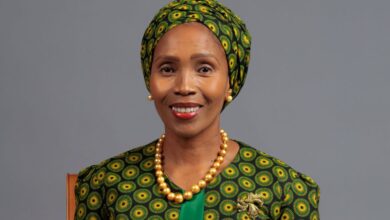
The Senior Curriculum Specialist in the Ministry of Education and Training, Mpho Sekhosana, emphasized the importance of strong support for all schools piloting the new curriculum, highlighting the Ministry’s commitment to ensuring the initiative’s success. Sekhosana shared this in an interview with the Agency during a five-day training session for teachers in Scientific and Technological subjects, including Science, Agriculture, Food and Nutrition, and Fashion and Textile. These teachers, coming from all districts, will be teaching Grade 8 when schools reopen for the year 2025.
Sekhosana noted that the new curriculum is part of a broader review of the national education policy, which has led to updates in the scope and sequence charts, syllabi, and standards. Given these significant changes, training teachers to effectively deliver the revised content is essential. “For the new curriculum to succeed, it is imperative that schools, especially those piloting it, receive all the support they need from the Ministry,” Sekhosana said. The training aimed to ensure that teachers are well-equipped with the knowledge and skills to pass on the updated content to learners in the most effective way possible.
In addition to the training for secondary school teachers, a similar initiative was held for Early Childhood Care and Development (ECCD) educators. National Teacher Trainer Puleng Maleke explained that this training was prompted by the challenges teachers faced with the previous curriculum. These issues necessitated remedial training to help ECCD teachers better manage and implement the new curriculum in early childhood education.
Meanwhile, the Ministry’s Legal Department conducted a one-day workshop for principals who have recently transitioned from acting positions to permanent, pensionable roles. The workshop, led by Director Santi Mofoka, focused on the codes of good practice, as well as the roles and responsibilities of principals in their respective schools. The workshop saw participation from principals across three centers: Phamong, Mpharane, and Taung. It provided them with valuable insights into their new duties and how they can best lead their schools in alignment with the Ministry’s guidelines and objectives.
The ongoing training initiatives reflect the Ministry of Education and Training’s commitment to improving the quality of education and ensuring that teachers and school leaders are fully prepared to support the successful implementation of the revised curriculum. As the country works towards a more modern and comprehensive educational system, these efforts are crucial in helping both educators and students navigate the changes effectively.
Join 'Lesotho News' WhatsApp Channel
Get breaking Lesotho news — delivered directly to your WhatsApp.
CLICK HERE TO JOIN



